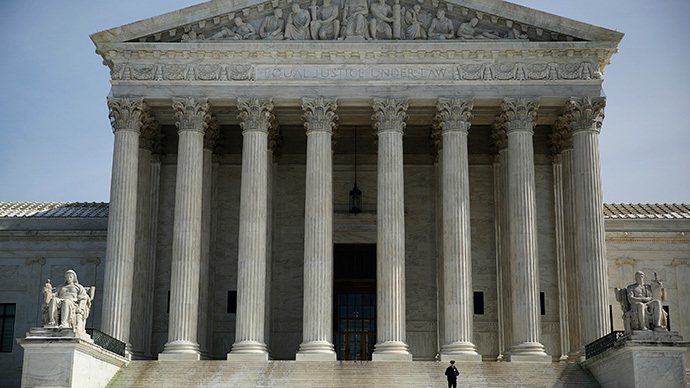NY Times reporter faces jail time after Supreme Court refuses to hear appeal

A New York Times journalist faces jail time after the US Supreme Court declined to hear an appeal on Monday over whether the First Amendment gives him the right to protect his confidential source.
James Risen, a Pulitzer Prize-winning journalist, has repeatedly refused to name the source for his 2006 book entitled the “State of War: The Secret History of the CIA and the Bush Administration” exposing CIA abuses he had discovered.
In particular, chapter 9 of that book disclosed an attempt by the CIA to have a former Soviet nuclear scientist subvert the Iranian nuclear program. Arguments presented in Risen's book, forced the US Department of Justice to search his phone, credit card and bank records to compile a case against a former CIA agent Jeffrey Sterling, charged under the Espionage Act, for allegedly leaking the Iranian story to the reporter.
The DOJ subpoenaed Risen to testify about his business with Sterling. The DOJ formally asked the Supreme Court not to hear Risen’s appeals of the Fourth Circuit Court of Appeals’ decision ordering Risen to comply with the subpoena to reveal his source, saying that even if the nation’s highest justices believe journalists have a right to reporters privilege in criminal cases, Risen’s case presents a poor example.
“While the question presented does not warrant this court’s review, this case is a particularly unsuitable vehicle,” the government argued in a brief filed at the end of April. “Although many states recognize a reporter’s privilege of some sort in some circumstances, no ‘consensus’ exists about who qualifies for such a privilege, what types of communications are covered, and the circumstances in which it may be invoked.”
On Monday, the Supreme Court declined to hear the case, effectively siding with the Justice Department, despite not giving any explanation for its refusal. Therefore, the Fourth Circuit’s ruling that “there is no First Amendment testimonial privilege, absolute or qualified, that protects a reporter from being compelled to testify by the prosecution or the defense in criminal proceedings” stands.
“I will continue to fight,” Risen said in a statement after the high court’s decision. Fighting - meaning not naming his source - could result in jail time for contempt of court.
But the DOJ is sending mixed signals about its intents regarding Risen. Journalist Josh Gerstein explained that the Justice Department was once willing to proceed in the Sterling trial but now seems intent on forcing the Times reporter to take the witness stand.
“[Risen] has said repeatedly that he will not divulge details about his sources. That could place President Barack Obama in the awkward position of presiding over the jailing of a journalist in an administration the president has vowed to make the most transparent in history,” Gerstein wrote.
In 2011, Judge Leonie M. Brinkema argued that prosecutors could prove their case against Sterling without Risen’s testimony. “A criminal trial subpoena is not a free pass for the government to rifle through a reporter’s notebook,” she wrote while quashing a subpoena for Risen.
Last week, however, Attorney General Eric Holder met with a group of media executives, the New York Times reported. “As long as I’m attorney general, no reporter who is doing his job is going to go to jail. As long as I’m attorney general, someone who is doing their job is not going to get prosecuted,” Holder said at the meeting, according to people who attended it. But the DOJ said Holder was referring to a long-held position, not any particular case.
Holder is a proponent of congressional efforts to pass a national media shield law, a bill meant to protect members of the press from government intrusion and maintain the free flow of information to the public. Last summer, the DOJ created new regulations governing investigations involving journalists. Under that reform, the agency is required to notify a news agency or journalist as soon as a subpoena is sought unless doing so would "pose a clear and substantial threat to the integrity of the investigation.”













